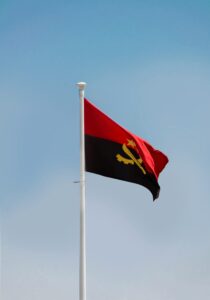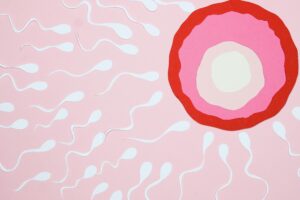As for natural resources, Angola has a great variety of them both renewable and non renewable. The abundance of natural resources in the country has helped in its economic growth rate over the years, although it has also posed some problems especially management and sustainability. Here in below are some of the economic resources found in Angola
- Oil and Gas
Crude Oil: Angola is one of the leading oil producers within Africa and oil remains the core resource to its economy. The country contains large offshore oil deposits notably in the deepwater blocks within its coasts. Prominent fields include Girassol, Dalia and Pazflor fields.
Natural Gas: In the same context as oil, natural gas can be found in significant amounts in Angola, but it is largely in the context of associated gas. This gas is mainly used in the country to generate electricity and in some cases exported as LNG. - Diamonds
Angola is among the largest diamond-producing countries in the world, with considerable diamond resources found on the northern part of the nation. The country produces both industrial and gem quality diamonds, which are mostly extracted from alluvial deposits in Lunda Norte and Lunda Sul provinces.
Sources indicate that the bulk of Angola’s diamonds produced enter the international markets and this sector has a notable impact on the country’s GDP. - Minerals
Copper: Angola has the most copper reserves in the country, primarily located towards the south and central parts. She was previously known as one of the leading exporter of copper and owing to that reason, than trying to evaluate any attempts in this sector, primary exploration activities are on the rise.
Iron Ore: Vast iron ore, primarily found in Western Angola, but the industry is still in its infancy within the country.
Omnia: There are a number of regions with gold deposits, and limited gold mining takes place, however, the sector is less progressed than some other African countries. - Other Minerals: The country of Angola also has deposits of other elements, such as phosphates as well as limestone and manganese, but not to the same degree as oil and diamonds.
- Timber and Forests
The country has large forest cover with vast majority of them tilted towards the north central region which has a tropical rainforest. These forests have high proportion of timber species such as mahogany and other hardwood timber. - Forestry is critical for the country both for local consumption and revenue generation from exports, however, raising issues of deforestation and concern for over-logging.
- Agricultural Resources
Land: Among the many attributes of Angola is the existence of cultivable land especially in the central and southern parts of the country which can be planted with several varieties of crops. - Crops: Crops grown in Angola include maize, cassava, beans, rice and sugarcane. The other main products include coffee, cotton and tobacco which are produced for the foreign markets.
- Livestock: This country also has well-established livestock keeping practices majorly cattle goats and poultry for both local and export markets.
- Water Resources
Angola is endowed with large amounts of fresh water, including an extensive network of rivers such as the Cuanza, Zaire, and Kunene, which support agriculture, generate hydropower, and provide drinking water.
There are prospects for hydropower generation in the country, with major installations such as the Laúca Dam and Capanda Dam on Cuanza River. - Renewable Energy Potential
Angola is richly endowed with renewable energy potential especially in regards to solar, wind and hydropower energy. Additionally, the state has been looking for solutions to go beyond the reliance on oil and gas, seeing that investments are increasing in projects based on solar and wind power. - Marine Resources
Angola’s coast is also blessed with a lot of fish and other aquatic resources. The country has fish resources such as sardines and tunas among many others. The activity is however facing challenges with overexploitation and illegal fishing as it is pursued for home use as well as export purposes. - Difficulties and Prospects
- Although the natural wealth of Angola is a significant means for economic emancipation, it’s is also susceptible to:
- Administration of Resources: The optimal utilization of the deposits of various resources, especially – oil and diamond, has in the most opposing way been a pigsty out of corruption, and inability to build infrastructure, and also depending on mono-resources (oil).
- Pollution Control: The activity of using the natural resources, particularly oil and timber, has negative effects such as environmental pollution and deforestation.
- A few years ago, however, Angola has been taking steps to enable economic diversification and change the oil centered economy through promoting the growth of agriculture, tourism, and manufacturing sectors.




